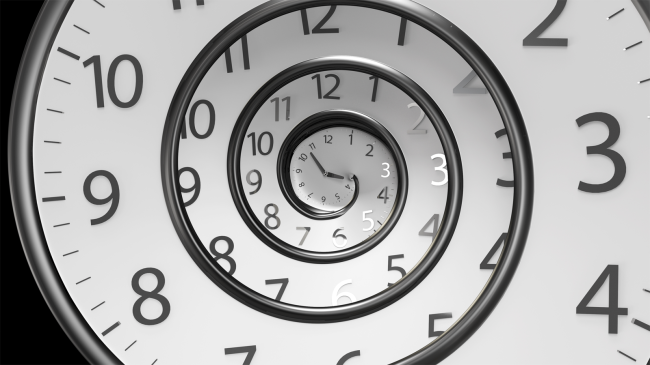iStockphoto
People have long been fascinated by the idea of time travel. It is something scientists have been trying to figure out for centuries.
So far no one has been able to figure out how to actually perform time travel, regardless of the plethora of movies and TV shows over the years that have pretended it can somehow be done.
On the plus side, we do seem to be making progress towards figuring it out.
In October, it was revealed that scientists had successfully simulated time travel using something called “quantum entanglement manipulation.”
This week, Science Alert reported that a physicist in Australia has figured out how to make time travel viable without the paradoxes by proving space-time can adapt itself, theoretically speaking.
“Classical dynamics says if you know the state of a system at a particular time, this can tell us the entire history of the system,” Germain Tobar from the University of Queensland in Australia, explained.
“However, Einstein’s theory of general relativity predicts the existence of time loops or time travel – where an event can be both in the past and future of itself – theoretically turning the study of dynamics on its head.”
The issue he was trying to solve is an age-old question: if you went back in time and stopped your parents from meeting, how could you exist in the future to go back in time? Another example is, if you go back in time to stop a disease from spreading and are successful, why in the future would you have gone back in time to eradicate a disease that doesn’t exist anymore?
Tobar’s work isn’t easy for non-mathematicians to dig into, but it looks at the influence of deterministic processes (without any randomness) on an arbitrary number of regions in the space-time continuum, and demonstrates how both closed time-like curves (as predicted by Einstein) can fit in with the rules of free will and classical physics.
“The maths checks out – and the results are the stuff of science fiction,” said physicist Fabio Costa from the University of Queensland, who supervised Tobar’s research.
Basically, what he discovered is that if we ever do gain the ability to time travel we wouldn’t have to worry about paradoxes.
“Try as you might to create a paradox, the events will always adjust themselves, to avoid any inconsistency,” said Costa.
“The range of mathematical processes we discovered show that time travel with free will is logically possible in our universe without any paradox.”
Now we just have to figure out how to do it.
And based on one theory, it’s already been shown that we will at some point in the future.

